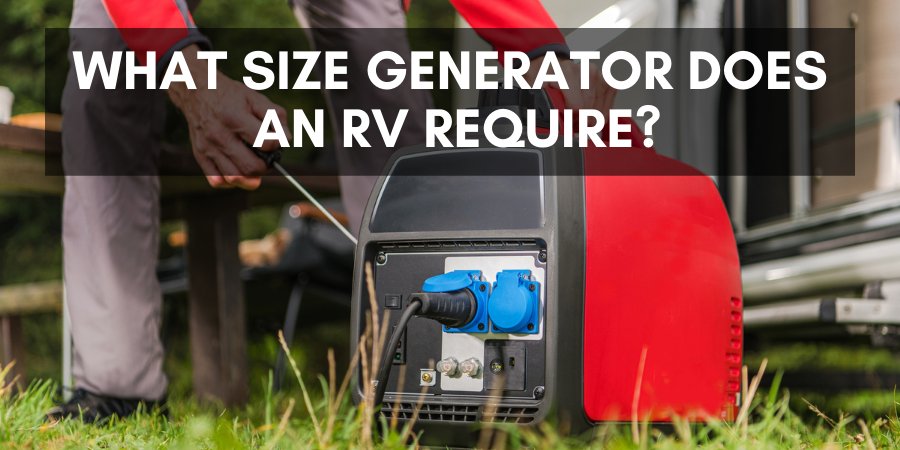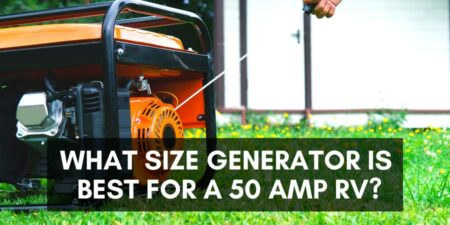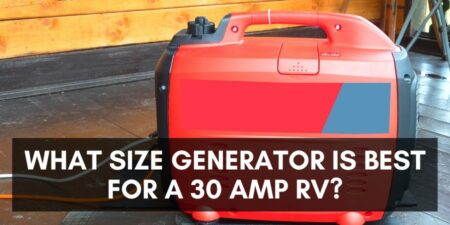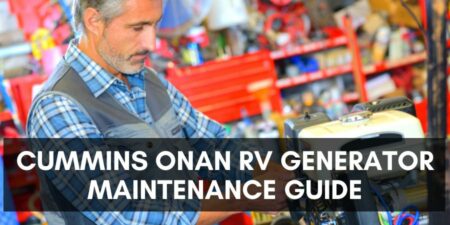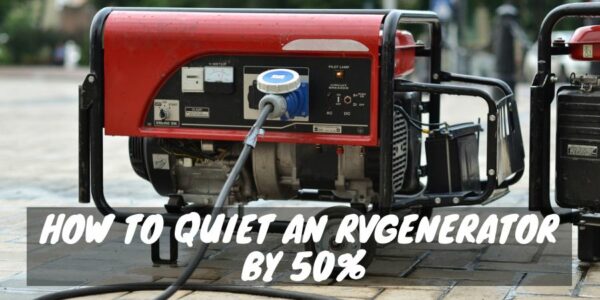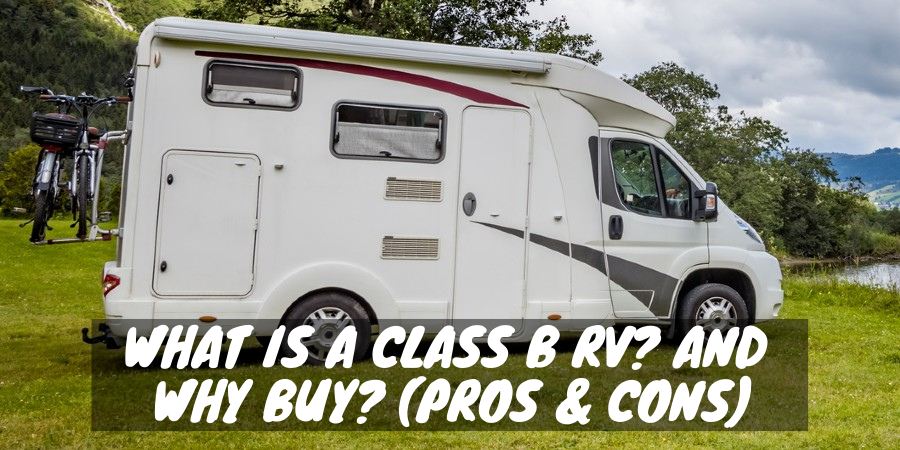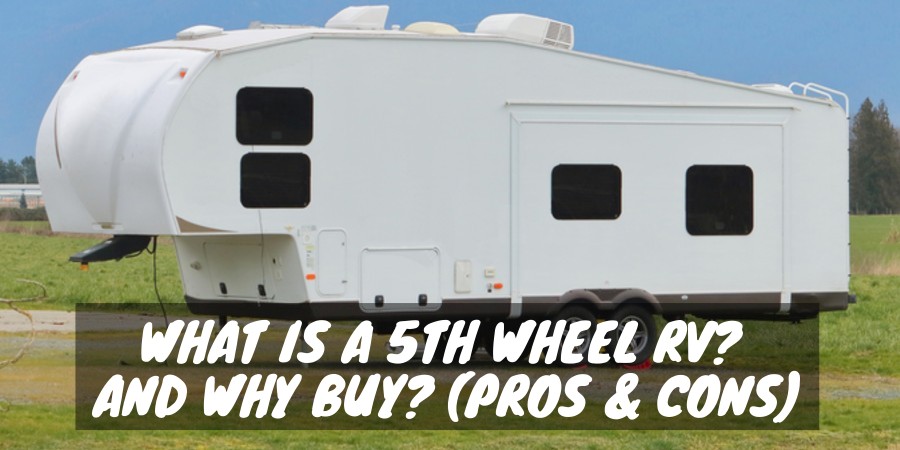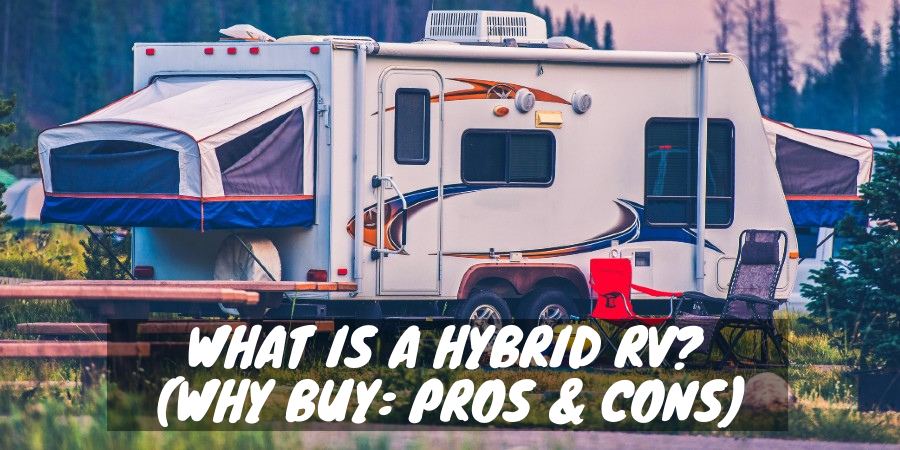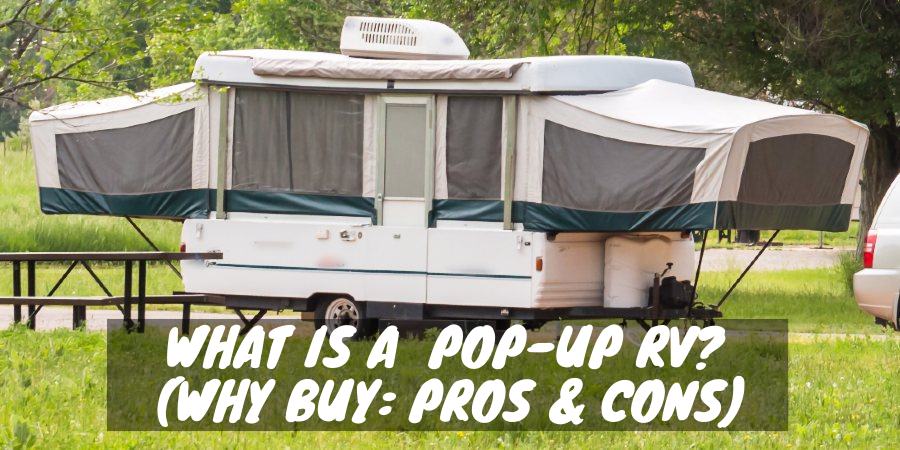Serious RVers love having the flexibility of a generator to provide power during boondocking trips or when campground power unexpectedly goes out.
While some RVs come with a generator, most do not, and you’ll have to choose the right size that will fit your camper and deliver the amperage you need to keep appliances and lights running.
To help you determine the best size generator for your RV, inside this guide, I break down:
- Important features of RV generators
- How to figure out your RV’s power needs
- How to maintain a generator
When you’re ready for any camping need by having a generator as an alternate power source, all your RVing trips will be much less stressful, so stay right here to learn more!
Important Features
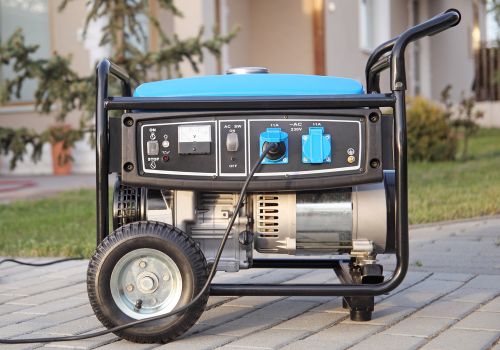
3 RV Generator Types
RV generators come in three types:
All RV generators will be lighter in weight, have about three times the horsepower, and be quieter than a typical home or business use model.
1. Permanent RV Generator
A permanent RV generator has a special compartment within the RV to sit, so you don’t have to store it elsewhere while you travel.
The compartment will have venting so that you can operate the generator in place. You’ll also be able to access all the components so you can replace filters or make repairs without tearing apart your RV.
Permanent generators come with a built-in transfer switch, which automatically turns the unit on and off depending on if you’re using shore power or not.
An enclosed RV generator is the most expensive option for alternate power, but the unit is also the most durable and long-lasting.
If you plan to install an aftermarket enclosed generator in your camper, you must carefully measure an appropriate compartment so the unit fits and there’s space for venting.
2. Portable RV Generator
- 5300 Running Watts and 6600 Peak Watts; Recoil Start; 4. 7 Gallon Fuel Tank With Fuel Gauge; Up to 14.5 Hours of Run Time Per…
- Features One 5–20R 120V Household Duplex Receptacle, One RV-Ready TT-30R 30 Amp Receptacle, and One Transfer Switch Ready…
- Plug-and-Play: Comes With Oil, an Oil Funnel, a Tool Kit, and a User’s Manual to Get You Started Right Out of the Box…
- Powered by a 274cc Westinghouse 4-Stroke OHV Engine Featuring a Long-Lasting Cast Iron Sleeve With Automatic Low Oil Shutdown
- All Westinghouse Portable Generators are Functionally Tested in the Factory and May Contain Minimum Residual Oil and/or Fuel…
A portable RV generator gives you more flexibility for use around the campsite with or without shore power being available.
Portable RV generators are much easier to move about, but they get heavier and larger as the power output rises.
While these units are much more affordable, they aren’t made to be run all the time over a long span and will need replacement every five years or so of heavy use.
3. RV Inverter Generator
- DUAL FUEL: Operate your 4500-watt portable generator right out of the box on either gasoline or propane, plus the unit holds…
- ELECTRIC START: Battery included, plus Quick Touch Panel allows you to access all your controls in one spot
- QUIET OPERATION: 61 dBA is perfect for RVs, tailgating, your next project or backup power for your home, featuring 4500 starting…
- CLEAN POWER: RV Ready with a 120V 30A RV, plus two 120V 20A household outlets with clean electricity (less than 3% THD) and 12V DC…
- CHAMPION SUPPORT: Includes 3-year limited warranty with FREE lifetime technical support from dedicated experts
An inverter generator is the most fuel-efficient type of portable RV generator and is generally the lightest.
The unit takes AC power, changes it to DC power, then back again to AC power. Inverter generators for RV cost more than mechanical versions but have more features like variable speed settings and delivery of only the amount of electricity you require.
You can hook up one or more inverted generators together to increase power output, which is another perk of this type of unit.
6 Features to Look for in RV Generators
1. Starting and Running Power Capacity
The number you see advertised on generators is often the maximum power the unit can generate to start high-draw appliances. There will also be a secondary lower number for the unit to indicate how much electrical output it can generate while running.
To keep your RV running off a generator efficiently, you should try to give yourself a 10% power buffer above your actual needs. For example, if you need 2,600 watts to run your camper, you should get a 3,000-watt generator to handle the load safely.
2. RV Generator Noise Level
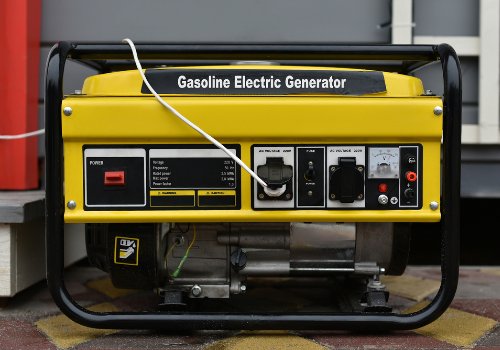
Generators can be very noisy, which can ruin the peace of camping in nature. Always look for the generator decibel (dB) rating at around 60 dB or below for the quietest operation.
3. RV Generator Weight and Size
Don’t buy the first generator that hits your power capacity needs without checking out how much it weighs and whether or not it’ll fit easily in your truck bed or RV.
There is a vast range of weights and sizes found between models, and you’ll want the one that weighs the least and is still top-quality.
You don’t want to overburden your RV, and for portable units, you may have to move it by yourself, so keeping it as light and compact as possible is wise.
4. RV Generator Run Time
Most generators can only run so long before they need a break or run out of fuel. If you plan to run your generator most of the time, look for a model that can last 12 or more hours without rest so you don’t damage the components.
5. Plug Options on the RV Generator
USB, 12v, 110v, 220v, 30A, or 50A plugs are all options you can find on a generator so you can attach a wide array of appliances, campers, or devices. If you plan to charge sensitive devices, get a generator that can do so safely.
6. RV Generator Emission Ratings
Most generators will list an emission rating, but these numbers are mainly for California residents as the state has tighter restrictions than all the others.
Of course, the less pollution your generator puts out, the better it is for the environment.
What’s the Best Generator Fuel Type for Camping?
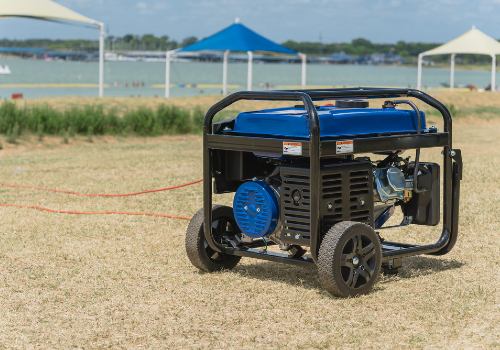
There are many fuel sources to power an RV generator, which includes:
- Diesel
- Gasoline
- Propane (LP)
Of the three, a generator that runs on diesel fuel is the best, with propane a close second as both burn cleaner than gasoline.
But, for practical purposes, most RVers choose to use readily accessible and lower-cost gasoline or propane units over a diesel generator.
Gasoline is easy to locate and cheaper than other fuels, but it’s stinky, should not be stored inside your RV, and burns up fast, so you need to carry along extra cans.
Propane is easier and safer to carry in your RV but lacks burn efficiency. Propane creates about 10% less power than gas but is often sold inside many campgrounds, so you don’t need to go searching for it.
Diesel is a cleaner-burning fuel versus gas and creates more power than propane, but the fuel is more expensive.
How to Figure RV Power Needs
Most new RVers go to complicated methods to figure out what size generator they need when it’s much simpler to get a unit that will match your camper’s max power input.
You can use this list for a quick idea of what size generator is best for your RV:
- Class B Campervan with one AC: 2,000-3,600 watts
- Class C Motorhome with one AC: 2,800-4,000 watts
- Class A Motorcoach with two 15,000 BTU ACs: 5,500-8,000 watts
- Class A Motorhome with three 15,000 BTU ACs: 10,000-12,500 watts
- Travel Trailer with one AC: 2,800-4,000 watts
- Travel Trailer with two ACs: 5,500-7,500 watts
- Fifth wheel with two ACs: 7,500-10,000 watts
However, many RVers only want enough power to keep specific appliances running when shore power is unavailable.
To help you understand the power draw of common RV appliances, refer to the following list.
Air conditioners:
- 7,000 BTU – 1,500-1,700 watts starting/600 running
- 10,000 BTU – 1,800-2,000 watts starting/700 running
- 13,500 BTU – 2,500-2,750 watts starting/1,250 running
- 15,000 BTU – 3,300-3,500 watts starting/1,500 running
| RV refrigerators | 600 to 1000 watts |
| Microwave | 800 to 1200 watts |
| Coffee Maker | 900 watts |
| Toaster | 1150 watts |
| Air Fryer | 800 to 1200 watts |
| Slow Cooker | 170 to 270 watts |
| TV | 200 to 600 watts |
| Laptop | 250 watts |
| Hair Dryer | 1,000 watts |
| Space Heater | 1,500 watts |
| Box Fan | 30-50 watts |
| Phone/Device Chargers | 10 to 30 watts |
| RV Lights | 12 to 20 watts each |
Want to Connect With a Community of Over 1,078 RV Enthusiasts?
Of course, most RVers won’t be running all their appliances at once, so you can think about how you use your camper’s features before choosing a generator size.
Remember that it’s not difficult to turn off one appliance to use another to reduce wattage draw so that a smaller RV generator can work if you don’t mind the hassle.
Average RV Generator Price
The average price for a 3,600-watt generator covering the electrical needs of a 30-amp RV will run about $450 for a portable unit and around $3,000 for an enclosed unit.
To support a 50-amp RV, you’ll need a maximum of 12kW of power. A portable generator of this size will run you about $1,300, while an enclosed unit will run $10,000+.
Top RV Generators
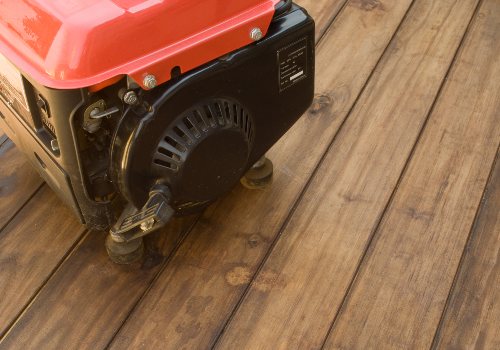
Here are some popular models of RV generators with details on weight and cost to give you an idea of what to expect:
Westinghouse iGen4500 Super Quiet RV Generator
| Weight | 107.1 pounds |
| Price | $1,309 |
| Power | 4500 starting watts/3700 running watts |
| Noise | 52 dB operational level |
The iGen4500 has a convenient TT-30R RV outlet for quick connecting to any 30-amp travel trailer or motorhome.
Champion Digital Hybrid Open Frame Inverter
| Weight | 81.6 pounds |
| Price | $575 |
| Power | 4000 starting watts/3500 running watts |
| Noise | 60 dB operational level |
This Champion generator can run up to 17 hours on one tank of fuel.
Generac GP3000i Super Quiet Generator
| Weight | 55.6 pounds |
| Price | $790 |
| Power | 3000 starting watts/2300 running watts |
| Noise | 40-68 dB operational and start levels |
The Generac GP3000i offers Power Rush Technology to deliver 50% more starting power over a regular generator, reducing fuel consumption and is safe for charging sensitive devices like laptops and phones.
- PowerRUSH Technology – Delivers over 50% more starting capacity-allowing you to do more with less
CUMMINS ONAN – 12000-Watt Diesel Generator
| Weight | 756 pounds |
| Price | $10,910 |
| Power | 12000 watts |
| Noise | 70 dB operational level |
The ONAN onboard generator can crank out the amperage to keep even a 50A, 2-3 A/C motorhome, fifth-wheel, or travel trailer running with ease.
How to Maintain a Generator
All generators are an investment, so keeping them well-maintained is a must so they perform when you need them to.
Read up on manufacturer recommendations for starting and running the unit during stretches of non-use and how to treat fuel left in the tank, especially if you put your RV in storage for several months of the year.
You should replace the oil filter after every 100 hours of running the generator.
You can choose to install a new one or clean the current one every month or two for the air filter.
You can dust off the paper filters and reinstall them.
Foam filters need to be soaked and washed in mild dish soap and water. Once you let it air dry, it will require air filter oil over the foam (removing excess) before reinstalling the filter in your generator.
Final Thoughts
Getting the right size RV generator is the only way to ensure you’ll always have the power you need to run all your camper’s appliances and lights when you don’t have access to shore power.
I hope the information in this guide makes the process of buying the best RV generator easier so you can hit the road and create even better camping memories!
"Man cannot discover new oceans unless he has the courage to lose sight of the shore."
-- Andre Gide

